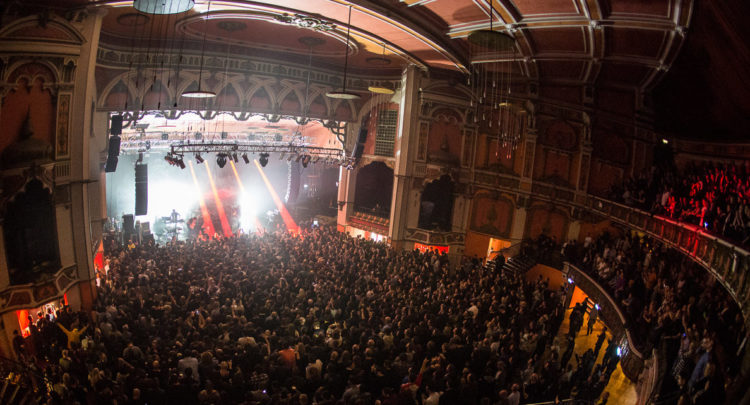More than 500 people from labels, production companies, studios, agents and community-led organisations as well as artists offered views in the LJMU/Bido Lito! study. Tony McDonough reports

Liverpool’s live music scene is being held back by too few paid gigs and new property developments forcing the closure of venues, a new report claims.
And the study, a collaboration between Liverpool John Moores University (LJMU) and Bido Lito! magazine, also reveals a lack of diversity with the scene too “white, straight, male and band-orientated”.
The report, entitled Liverpool Music City? received more than 500 responses from labels, production companies, studios, agents and community-led organisations as well as artists.
Gentrification threat
Many respondents put forward the view that the biggest challenges facing the industry in Liverpool were a lack of strategy and conflicts over land and property.
Gentrification and redevelopment of large sections of the city centre were, many claimed, forcing the closure of too many venues.

Katherine Cantwell of Heavenly Recordings told the researchers: “In recent years venues have been threatened with closure due to attracting people and students to their area and therefore making the area desirable.
“This problem of gentrification is fairly new but it’s happening incredibly fast and venues across the country are being replaced with Starbucks, students flats etc. The council needs to stop this from happening – new laws need to be put in place for venues to be protected.”
Too narrow
Other findings also included a lack of diversity in the current music scene and “market failure” characterised by an increase in ‘pay-to-play’ gigs combined with low attendance.
On the diversity issue music lecturer Christine McKenna said: “The Liverpool music community is very narrow and has been for a long time. It is predominantly white, straight, male and band-orientated.
“Women are not encouraged, BME artists are not encouraged, certain genres are not encouraged.”
On a similar theme another contributor, promoter and music PR Jamie Otsa, added: “More needs to be done to support local talent… the same funding goes to the same folks and is often squandered on bands and projects that have zero realistic potential of making any kind of foothold in the industry.
“There needs to be a fairer, more democratic way, of allocating funding.”
Better marketing
Other respondents also talked about the need for the local music scene to sell and market itself better to visitors to the city, many of whom will be attracted by the music heritage of the Beatles.

Lead investigator Dr Jan Brown from Liverpool Business School said: “The research demonstrates a real grassroots passion for music in the city. Not only passion but a sophisticated knowledge and understanding of the key issues and opportunities being faced both now and in the future.
“This knowledge and understanding also unearths a wealth of innovative ideas and potential ways forward that could have a real impact on music in the city and beyond.”
LJMU has commissioned 5,000 copies of the full report to be distributed by Bido Lito! at key locations around the city and it is also available to read online by clicking here.
